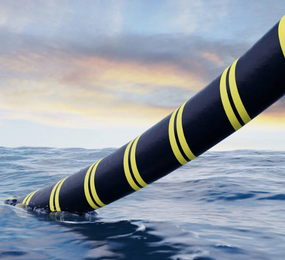Plastic is used everywhere in our society. Our phones, clothes, bottles, and automobiles all contain them. However, after greatly enhancing our quality of life, they now pose a threat to both our environment and our health. The delicate equilibrium of many ecosystems is put at risk by the accompanying carbon emissions and plastic's durability. Utilising biodegradable plastics is one solution. Such plastics can ideally be quickly consumed by microbes and eliminated from our environment. This may lessen the problems with littering, microplastics, and climate change. However, biodegradable polymers still make up a very small percentage of the global plastics market, necessitating additional research and commercialization efforts.
Biodegradable plastics are defined as plastics that decompose in a specified amount of time under composting conditions in industrial facilities.
Over the past ten years, the use of biodegradable plastics has increased. They are used in textiles, automotive, agriculture, construction and in multiple sectors, but most importantly in packaging application. Although the market for biodegradable plastics still represents less than 1% of the total plastics market, this trend is anticipated to alter soon due to rising consumption.
At a projected CAGR of 8.6% from 2021 to 2026, the market for biodegradable plastics would grow from USD 2776.1 million in 2020 to USD 3033.1 million by 2026.
Although there are currently accepted global standards for biodegradable plastics, there is currently no real industry regulation and the process is completely voluntary.
Regulations have the virtue of giving consumers some level of assurance when they are making purchases, as with anything else. These standards enable consumers to dispose of biodegradable products in landfills or compost compostable plastics with some degree of assurance.
When a product is certified biodegradable, customers can be sure that it is safe for them, their families, and the environment. It also helps to understand how to dispose of the product.
The option to market your product as biodegradable plastic is one of the major and obvious benefits for manufacturers of compostable plastic items or materials. A certification demonstrates to customers that your product is made of bioplastic rather than conventional plastic and indicates that the substance complies with standards.
The benefit for companies is obvious because consumers and other companies will recognise them as selling a bioplastic rather than a conventional plastic. The certification offers product proof and makes waste sorting simple.
The certification helps in ensuring proper product handling during the composting process. This will make it easier for customers to understand that your product is certified compostable and that they should dispose of it at a residential or commercial composting facility.
We are all aware that compostable and biodegradable plastic are excellent plastic substitutes for individuals looking to lessen their environmental impact; yet, there are few laws that govern these standards. An expert panel has been gathered to talk about the current trends and regulations on biodegradable plastics at the World Biopolymers and Bioplastics Innovation Forum, in Berlin, Germany on 1st through 2nd March, 2023!
To register or learn more about the Forum please check here: https://bit.ly/3TQ1k8m
For more information and group participation, contact us: [email protected]
















